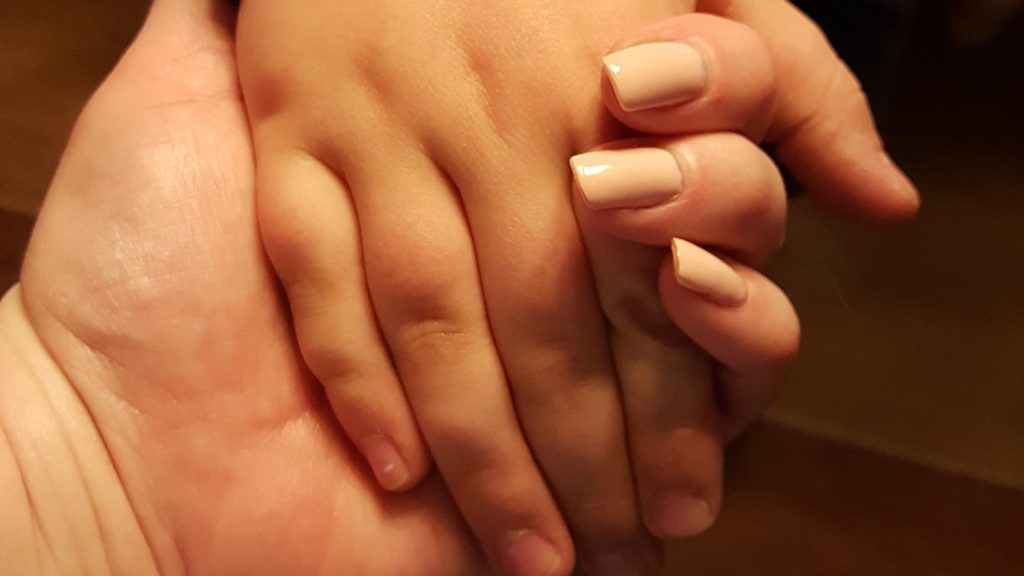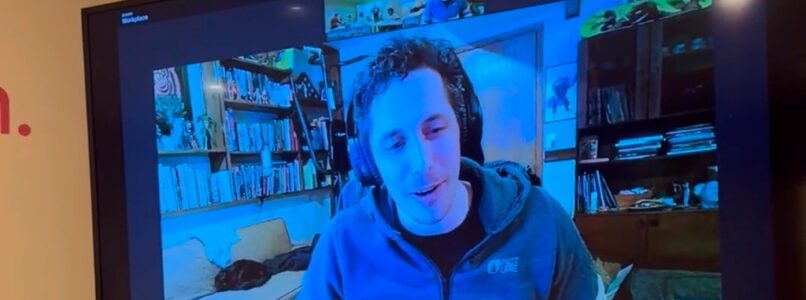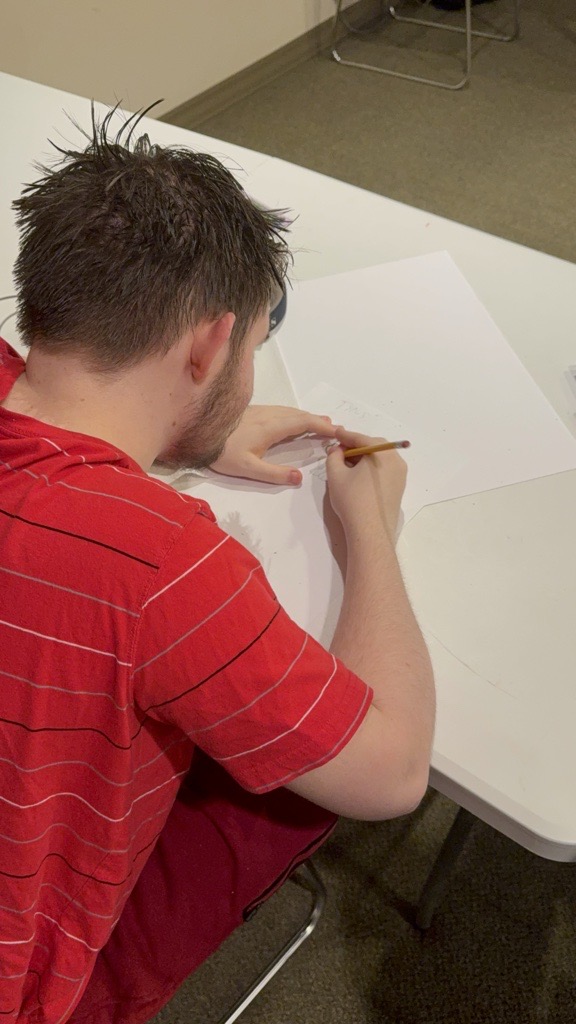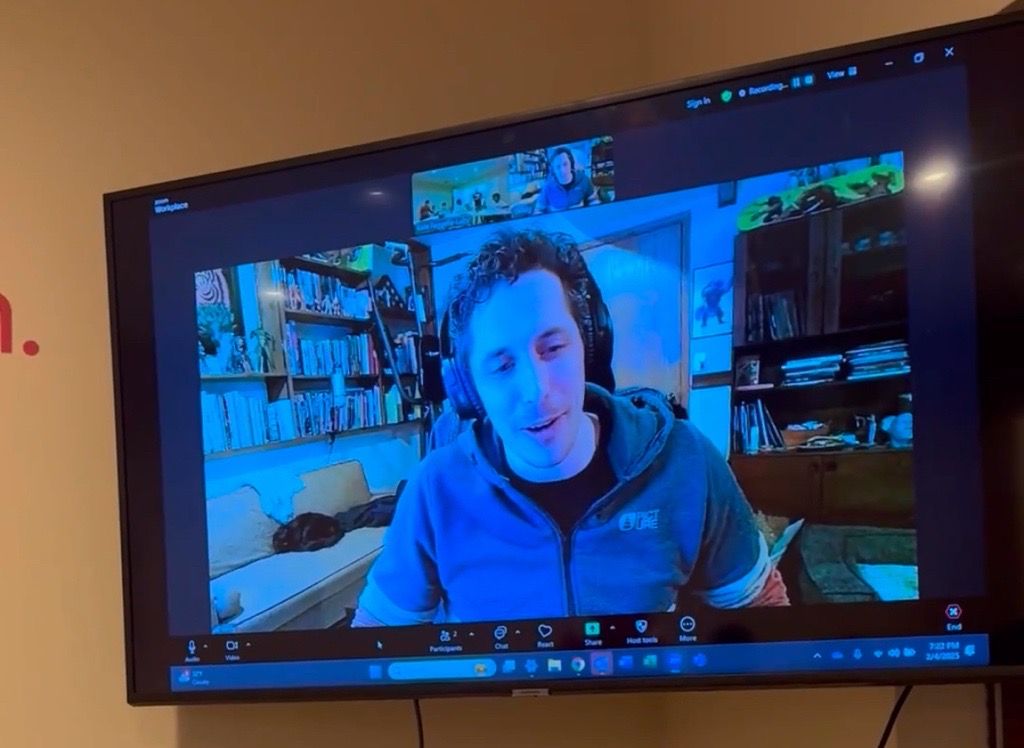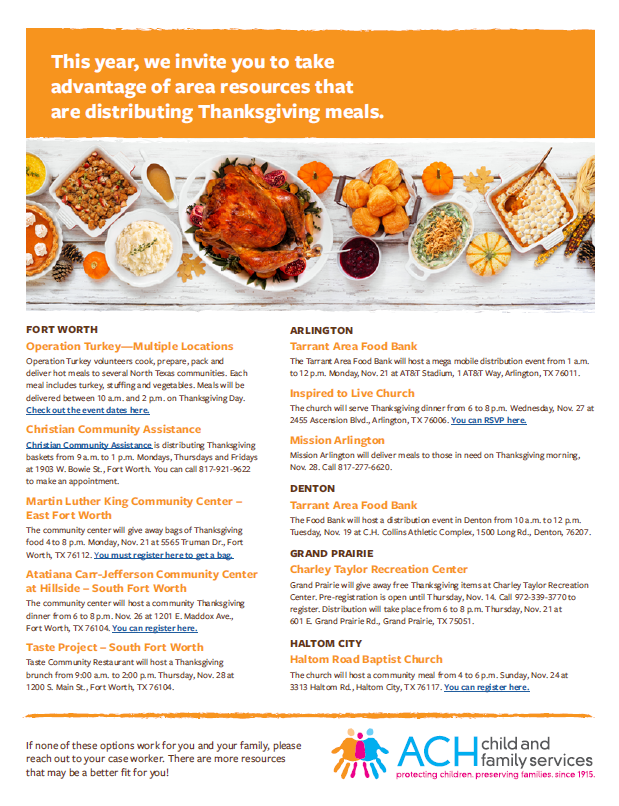ACH Child and Family Services often witnesses acts of selflessness, and we are there to make sure those sacrifices are not in vain.
This past April, an FBSS (Family Based Safety Services) worker contacted ACH Child and Family Services’ Assessment, Intervention, and Referral Services (AIRS) department for help. She was desperately trying to find placement for two youths on her caseload but had been turned down by numerous programs and shelters in the community. The children had been living with their mom in her truck due to chronic homelessness and their mother’s addiction.
The FBSS worker explained how the mom had been accepted into a rehab program in Dallas. However, she needed to find a place for her children to live while she completed the program due to her limited social support network. Once enrolled in the program, the mom could not leave the campus, or she would forfeit her spot.
“The stakes were high for this family,” says Kara Holmes, a clinical manager at ACH. “If the mom did not successfully complete this rehab program, she would lose custody of her children, and they would be placed in the child welfare system. If she didn’t find a place for her children to safely live, she couldn’t enter rehab.”
A Lifeline: ACH’s Pat O’Neal Youth Emergency Shelter
Since the mom was the legal guardian of the children, AIRS instructed the FBSS worker to have the mom call back and complete a referral form for ACH’s Pat O’Neal Youth Emergency Shelter. The shelter, which is for ages 5 to 17, is the only 24/7 shelter for youth in Tarrant County.
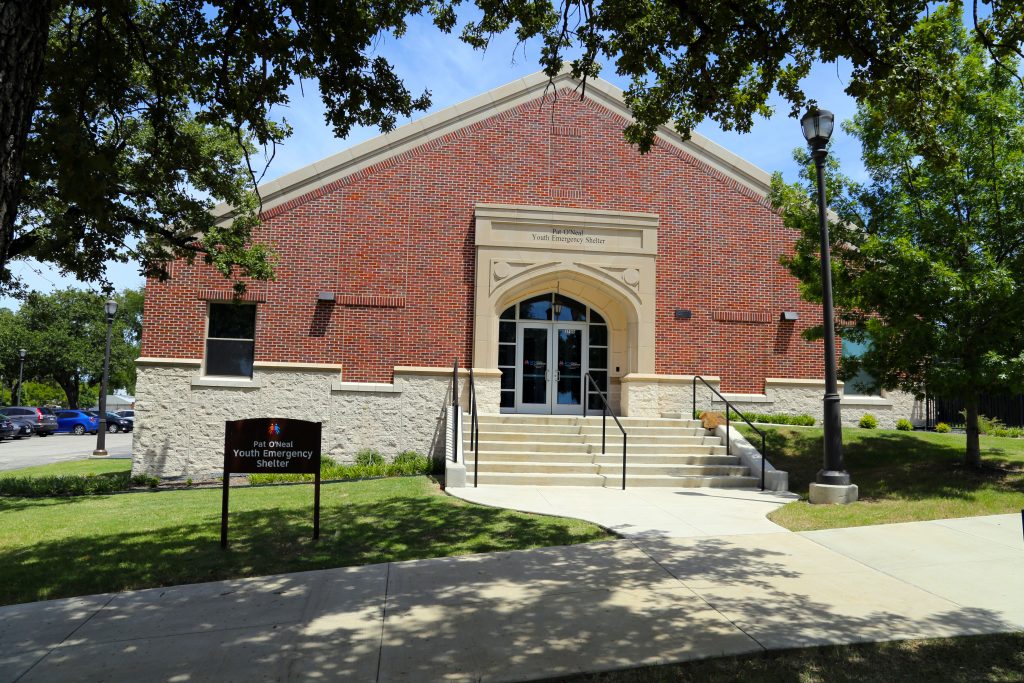
Determined to start her path toward recovery and keep her family together, the mom followed through and completed the shelter referral form. The shelter leadership team immediately accepted placement of the siblings.
The two siblings were placed at the shelter the Monday after Easter, and the mom reported to the rehab program that same day.
Coordinating Care and Support
When children enter the shelter, there are naturally some adjustments and challenges. They’ve often been uprooted in a short amount of time, there are new faces, and strange-to-them routines. In this case, one of the siblings needed some prescribed medications. Because the mom was the only person with the right to consent to any kind of treatment, our youth and family engagement specialist diligently worked with the FBSS worker, the caseworker at the rehab facility, and the mom to coordinate care for this child.
On another occasion, both children reported feeling sick. Again, the youth and family engagement specialist coordinated care with all involved parties to make sure the needs of the children were met.
These siblings were enrolled in our on-site FWISD charter school and successfully completed their school year. They received weekly individual therapy to support their emotional well-being during their stay at the shelter, as well as weekly connection and support from our youth and family engagement specialist. Our team ensured their basic needs were met, including purchasing clothing and supplies for the siblings.
A Mother's Journey to Recovery
Their mom completed her rehab program in Dallas, and as a result, she qualified for assistance in obtaining a job and securing housing. The youth were in our shelter for a total of 63 days.
When a child has experienced significant trauma such as this, it’s important for them to continue receiving support as they navigate a new normal. ACH’s continuum of care is tailored to help children and families no matter where they are on their life’s path. For this family, once the children were discharged from the shelter and received their mother’s permission, the children are now receiving free weekly outpatient counseling through our Real Help for Real Life program.
Real Help for Real Life provides help and support for youth, ages six to 17, and their families through our Youth and Family Counseling and Skill-Building Classes. These services are provided at convenient locations in Tarrant, Johnson, Parker, Hill, and Palo Pinto counties.
When a mother was ready to help herself, ACH was there to lovingly care for her children until she was able to get back on her feet.
AIRS serves as a portal to ACH programs and services, offering 24-hour crisis call response, centralized assessment to ACH programs and referrals to other services in the community. In 2024, AIRS referred 3,513 individuals to ACH programs and other services in our community.
The Pat O’Neal Youth Emergency Shelter (YES) is the only 24-hour emergency shelter in Tarrant County offering 24/7 safe shelter to runaway and homeless youth, and trafficking survivors, ages 10-17. ACH works to reunite them with their families, or find safe and stable alternative living arrangements. The program provides outreach, education, advocacy, counseling, and case management services for foster care and community youth who are experiencing family crisis, family conflict, or homelessness.




